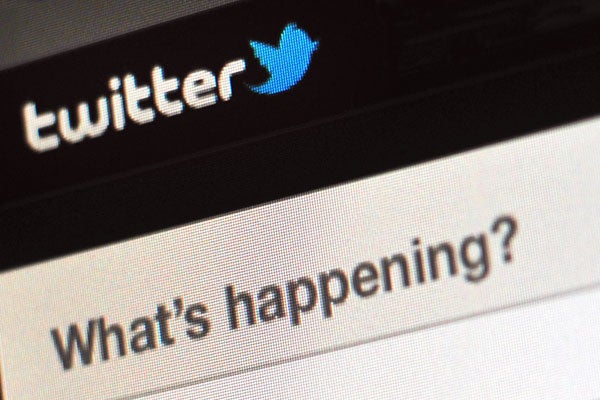Twitter is coming of age. Today, the social website will be offering its shares to the public, following in the somewhat faltering footsteps of its competitor Facebook.
But this is not the only the reason the 140-character social website is making its mark. World leaders, from President Obama to Iranian President Hassan Rouhani to Pope Francis, are tweeting away—or at least have those who do it for them. Twitter wars occasionally break out between terrorist warlords and U.S. or Israeli teams of strategic communicators.
Anthropologists and chaos theory experts may be needed to analyze the currents and trends on Twitter. As a tool of public diplomacy and strategic communication for governments, it is an unpredictable and mixed blessing. With 215 million users worldwide, Twitter has a more modest reach compared to Facebook. Twitter users are more likely to use their mobile devices, and the cacophony of tweets is more like a town square conversation, with very fast flowing trends.
The case of the U.S. embassy in Egypt last year is cautionary. With a raging mob of Muslims outside, embassy personnel tweeted out unvetted apologies for the amateur film The Innocence of Muslims. The embassy tweets even became an issue in the U.S. presidential campaign after criticism by Republican nominee Mitt Romney.
On the other hand, global leaders are greatly attracted by Twitter’s ability to go around traditional media, enabling them to message directly to their followers and beyond to the global audience. The team behind @HassanRouhani has shown itself pretty adept, promoting Rouhani’s perspective on the U.S.–Iranian relationship, with the U.S. State Department playing catch-up.
But Twitter, like all the other social websites, depends on the goodwill of governments to reach its users. Iran, ironically, does not allow its citizens to access Twitter and Facebook and employs an army of censors to root out breaches in its firewalls. According to Freedom House’s newly released “Freedom on the Net 2013” report, Iran is in fact exporting its technology and expertise to other countries, contributing to the lessening of global Internet freedom last year.
Twitter founder Jack Dorsey observed this irony in his tweet to Rouhani on October 1. “Good evening, President. Are citizens of Iran able to read your tweets?” The answer from the Iranian leader was enigmatic. “Evening, @Jack. As I told @camanpour, my efforts are geared 2 ensure my pp’ll comfortably b able 2 access all info globally as is their #right.”
Learning and using Twitter is somewhat like mastering a new language. The toolkit for diplomats has become more versatile in many ways, but the trick is control of the message. Furthermore, the international competition is heating up. What does seem clear, though, is that the future on Twitter belongs to the brief and witty.





















